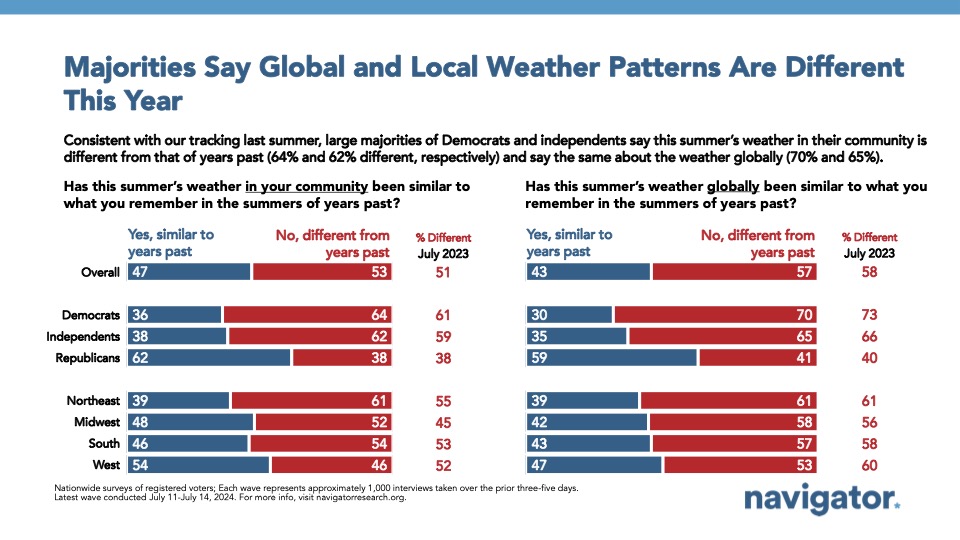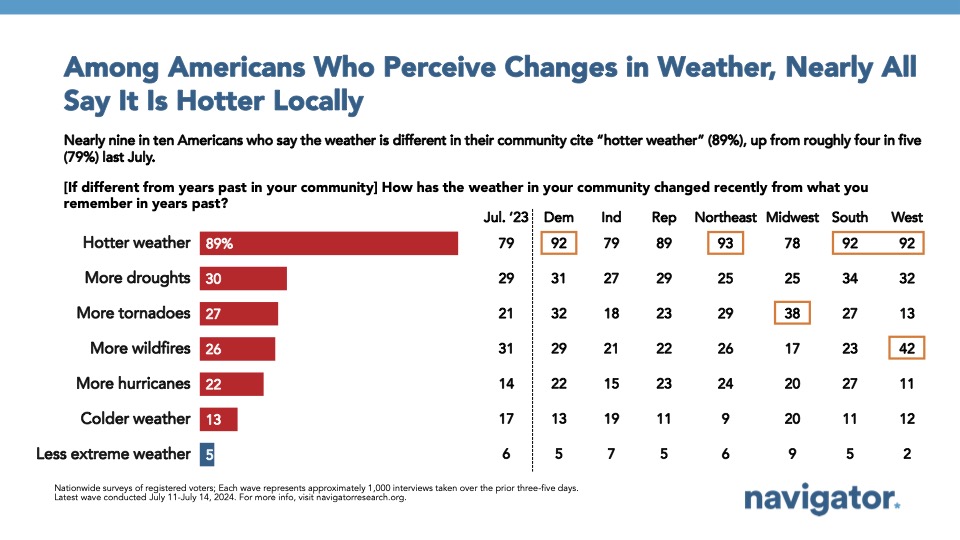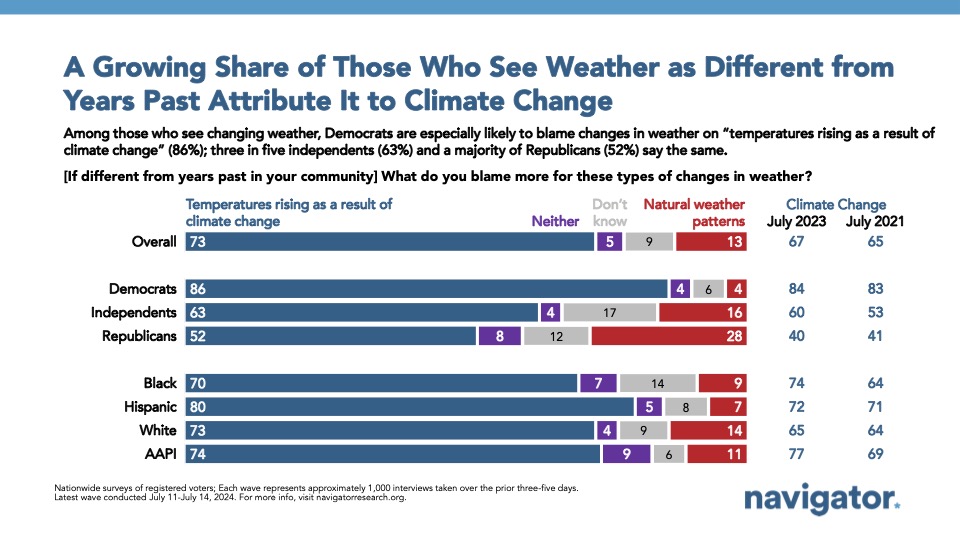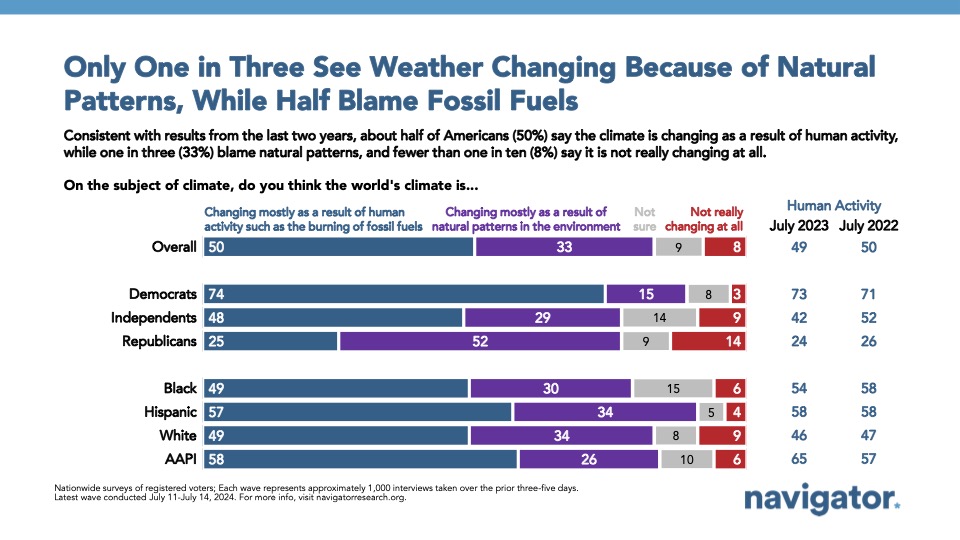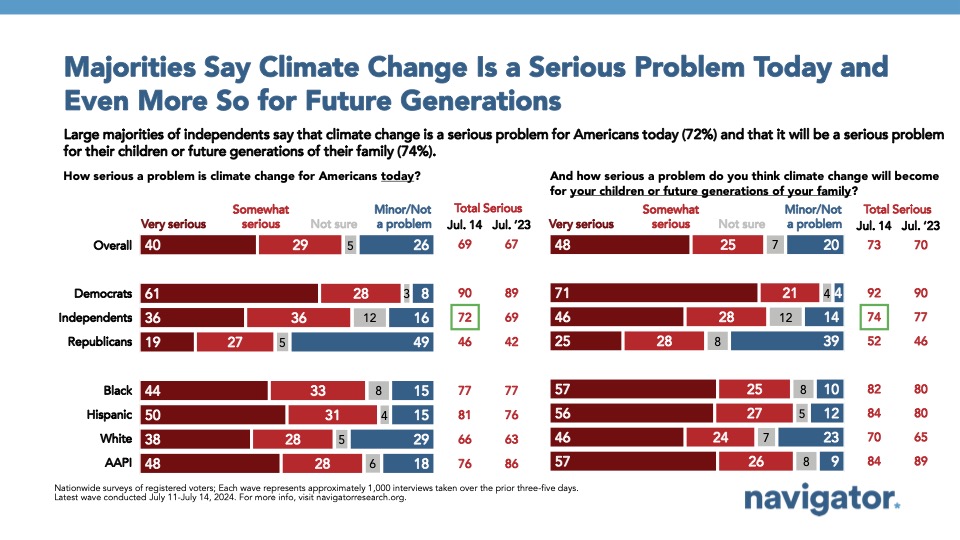Poll: Climate Change
This Navigator Research report contains polling data on perceptions of climate change and extreme weather, including what Americans believe is the source of climate change and how they believe this year’s weather compares to that of past years.
A majority say this summer’s weather has been different from years past, with nine in ten citing hotter weather.
By a 14-point margin, Americans believe this summer’s weather globally has been different from years past (57 percent different – 43 percent similar), and by a 6-point margin, Americans say the weather in their community this summer has been different (53 percent different – 47 percent similar). Among those who say the weather in their community has been different, nine in ten cite experiencing hotter weather than in years past (89 percent), a ten point increase from Navigator’s July 2023 survey when 79 percent said the same. By 60 points, Americans who believe the weather is changing in their community blame climate change for temperatures rising (73 percent) rather than natural weather patterns (13 percent), up 9 points from last year (net +51; 67 percent climate change to blame – 16 percent natural weather patterns to blame).
- Majorities of Democrats and independents believe this summer’s weather globally has been different from years past, including seven in ten Democrats (70 percent) and two in three independents (65 percent); however, most Republicans believe the weather is similar to years past (59 percent similar to years past).
- Among those who believe the weather is changing, 86 percent of Democrats, 63 percent of independents, and 52 percent of Republicans believe climate change is to blame for rising temperatures.
By nearly 20 points, Americans blame human activity such as the burning of fossil fuels for climate change rather than natural patterns in the environment.
50 percent of Americans believe the climate is changing mostly as a result of human activity such as the burning of fossil fuels while 33 percent believe the climate is changing mostly as a result of natural patterns in the environment. A majority of Democrats (74 percent) and plurality of independents (net +19; 48 percent human activity – 29 percent natural patterns) believe human activity is to blame for rising temperatures, while a narrow majority of Republicans believe natural patterns are to blame for rising temperatures (52 percent).
- By a 23-point margin, Americans under the age of 35 believe human activity is to blame for rising temperatures (55 percent human activity – 32 percent natural patterns). Similarly, a plurality of Americans over the age of 65 believe human activity is to blame for climate change (net +12; 47 percent human activity – 35 percent natural patterns).
Majorities believe climate change is a serious problem for Americans today, and nearly three in four believe it is a serious problem for future generations.
Seven in ten Americans believe climate change is a serious problem (69 percent), including two in five who believe it is a “very” serious problem (40 percent). Similarly, 73 percent believe climate change will become a serious problem for future generations, including 48 percent who believe it will be a “very” serious problem. Majorities across party lines believe climate change will be a serious problem for future generations, including 92 percent of Democrats, 74 percent of independents, and 52 percent of Republicans.
- Four in five Americans under the age of 35 believe climate change poses a serious problem for future generations (82 percent).
- 74 percent say they are concerned about extreme or unnatural weather, with 39 percent saying they are “very” concerned. Concern over extreme or unnatural weather spans across partisanship, with 90 percent of Democrats, 75 percent of independents, and 57 percent of Republicans saying they are concerned.

